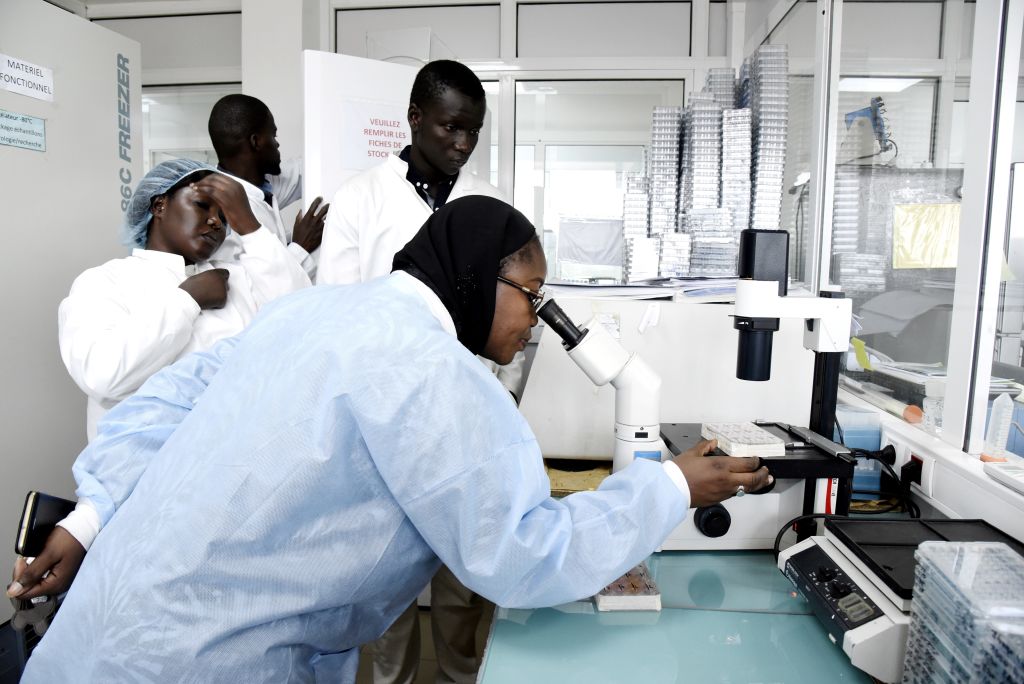WHO Report: Pandemic Successes Offer Lessons for Future Outbreaks
ADF STAFF
With the declaration of the COVID-19 pandemic, African countries responded quickly by closing borders and locking down the populations to prevent the spread of the potentially fatal respiratory disease.
Public health experts have credited that quick response, along with Africa’s young population, as playing an important role in reducing the pandemic’s impact.
But a recent study by the World Health Organization’s Africa region suggests there may be another reason for success in fighting the virus: the amount of collaboration and innovation that countries employed as they coordinated their response.
“Diverse sectors and disciplines collaborated towards the shared goal of mitigating the pandemic effects,” Boniface Oyugi, a consultant with WHO Africa, wrote recently in The Conversation.
The WHO’s study showed that the pandemic encouraged countries to experiment with new approaches to health care — methods that could provide important lessons for dealing with future outbreaks.
While the initial outbreak of the pandemic caught many countries off guard, the new methods they developed during the first wave of infections helped dramatically reduce the impact of future waves, Oyugi wrote.
“Every country was trying to do a lot within a short period,” he wrote. “Many countries were piloting to see what works and what did not. Governments applied what they learned on the go.”
Researchers at Senegal’s Institut Pasteur de Dakar, for example, used their experience with yellow fever and other viruses to develop Africa’s first at-home test for COVID-19 in October 2020.
Some countries improvised their response to COVID-19 by using technology they already had on hand. Rwanda used drones to share public information and deliver tests to distant parts of the country. Ghana and Senegal developed robots to screen patients. Niger and Liberia used software for communication between health officials and the public.
“Today’s tech-for-health innovations tailored to the pandemic response can be adapted for broader use in future,” Oyugi wrote.
The WHO’s analysis found several strategies worked best for managing the pandemic. They were:
- Appointing a high-level government office to coordinate the nation’s response. The WHO says 41 African nations took this approach. The report cited Ethiopia’s National Disaster Risk Management Council, run out of the country’s deputy prime minister’s office, as one example of a successful high-level response to managing the pandemic.
- Providing day-to-day technical support to those handling the pandemic at regional and lower levels, an approach taken by 28 countries. Côte d’Ivoire’s Public Health Emergency Operations earned praise for its ability to provide support to lower-level responders.
- Providing a decentralized approach that let counties, districts or other units of local government track and respond to the shifting pandemic situation within their jurisdictions. Fourteen countries took this approach with the WHO calling out Uganda as an example of how to put the tactic into action.
The WHO found that countries that applied all three approaches were able to shorten the second wave of infections by nearly 70 days.
Across all levels and approaches, one factor played a key role in the success of the effort: financing.
While African nations received funding from abroad, the WHO recommends that countries draw from their COVID-19 experience to set aside emergency funds that will let them react quickly and effectively to future disease outbreaks.
“Over-reliance on partners slowed down the coordination of the response in most countries,” Oyugi wrote. “A transparent institutional framework that is accountable for the funds is useful too.”
Overall, Africa countries that took a multilevel, well-organized approach to COVID-19 showed less impact from the pandemic, providing an important model for the future, Oyugi wrote.
“Having a collaborative approach involving different stakeholders is essential for future emergencies,” he added.


Comments are closed.